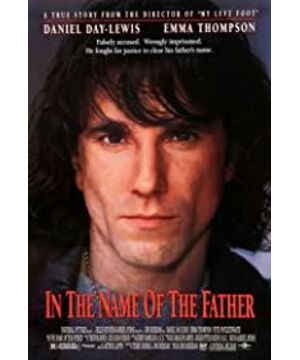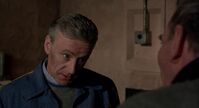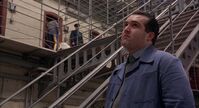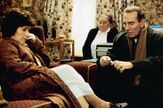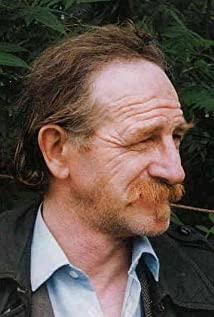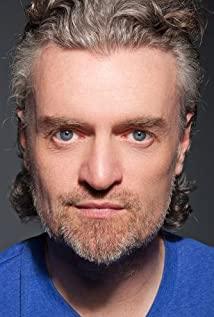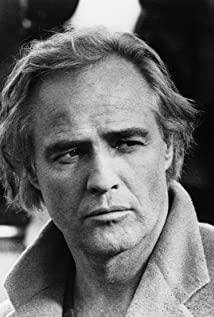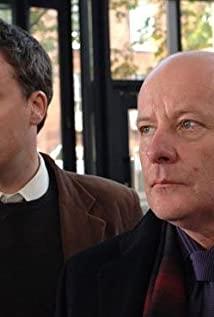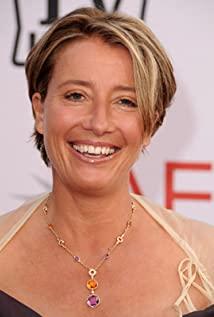In the Name of the Father The murderer, after spending 15 long and desperate years in prison, was finally rehabilitated with the help of a just female lawyer. At the beginning of the film, it depicts the tense relationship between Ireland and the United Kingdom at that time. The male protagonist was regarded as a sniper by the local police just because he was playing with an iron rod that looked like a robbery on the roof. , After being discovered, the Irish soldiers began to move their positions with guns, and almost all local residents, regardless of age, attacked the British army, and this is one of the themes to be shown in the film - the English battle with the Irish. At that time, Northern Ireland was the main battlefield between Ireland and the United Kingdom, and the dilapidated and chaotic scene can also be seen from the film. At the same time, it is precisely because the relationship between the two places is very tense, which also led to Gary's first trial in the original court. He was so helpless and hopeless when he was sentenced, and he was despised by countless people when he first entered prison. This is quite interesting. Although in the prison at the beginning, everyone did not give Gary and his father a good look, but only the black people in the prison were very friendly to Gary, and they threw him for the first time. The olive branch is also a metaphor for the situation of the Irish in the UK at that time, just as the lawyer said when defending Gary, "Do you need to wash your hands after shaking hands with Gary?" In the eyes of the British, they suffer from inhuman discrimination. The struggle that runs through the film is not only a struggle between nations, but also a struggle between "black" and "white". "Black" refers to the British police who only want to calm people's panic and create a good image but ignore justice; "White" refers to the protagonists who have always insisted on justice and strived to pursue the truth. In the film, the protagonist was enjoying his favorite "hippie" life one second, and the next second he was pulled into the boundless darkness by the police. Prison, mired in despair and helplessness for 15 years. As the protagonist himself said, "the other party is the government", how small and desperate the protagonist is in front of the government, but the government and the police still act slightly naive and paranoid even after knowing the truth. "Don't take it to defense lawyers" is written on it, how much you want to maintain the government's image, but the people's eyes are bright after all, although fifteen years ago, everyone was extremely impulsive. The protagonist made a strong statement, but after ten Five years later, he still chose the side of justice and gave the protagonist and his party the belated justice. It is also this belated justice. The protagonist's love for his father and family in the film gradually grows even more unforgettable. At the beginning of the film, the protagonist is still very rebellious and hates his family very much, saying that his family "has nothing to do", even if he left his family and went to distant London, he still lived a "hippie" life. But even so, the strength of the family still allowed him to finally break his inner line of defense when accepting the forced confession of "I will kill your father" and write a confirmation signature for the confession. When it came to prison, the protagonist maintained a rebellious and unwelcome attitude towards his father, and even disregarded his father's persuasion and walked with the real Irish Army terrorists. When the protagonist really felt the evil of people, he finally chose to accompany his father. It was at this time that he decided to help the lawyer so that his father could get out of prison and return to the arms of the family. It is a pity that his father failed to last until the day when he saw the light again. He died in prison unjustly, and the protagonist felt his inseparable affection for the family. The protagonist grows up step by step, and just like us, he also finds the bond between himself and his family in the step by step. In general, the film uses very ordinary shots to retell the chaos, despair, sadness, and growth at that time, giving people a deeper level of thinking, whether it is about ethnic disputes, the struggle between justice and darkness, or family. ties, is a thought-provoking question to this day. As the title says, "Justice Overdue", "In the Name of the Father" is an introspection of the West on its own judicial system, and it is also a mirror for us to examine ourselves. It is a pity that his father finally failed to see the light of day again, and died wrongfully in prison, and the protagonist also felt his inseparable affection for the family. The protagonist grows up step by step, and just like us, he also finds the bond between himself and his family in the step by step. In general, the film uses very ordinary shots to retell the chaos, despair, sadness, and growth at that time, giving people a deeper level of thinking, whether it is about ethnic disputes, the struggle between justice and darkness, or family. ties, is a thought-provoking question to this day. As the title says, "Justice Overdue", "In the Name of the Father" is an introspection of the West on its own judicial system, and it is also a mirror for us to examine ourselves. It is a pity that his father finally failed to see the light of day again, and died wrongfully in prison, and the protagonist also felt his inseparable affection for the family. The protagonist grows up step by step, and just like us, he also finds the bond between himself and his family in the step by step. In general, the film uses very ordinary shots to retell the chaos, despair, sadness, and growth at that time, giving people a deeper level of thinking, whether it is about ethnic disputes, the struggle between justice and darkness, or family. ties, is a thought-provoking question to this day. As the title says, "Justice Overdue", "In the Name of the Father" is an introspection of the West on its own judicial system, and it is also a mirror for us to examine ourselves.
View more about In the Name of the Father reviews


